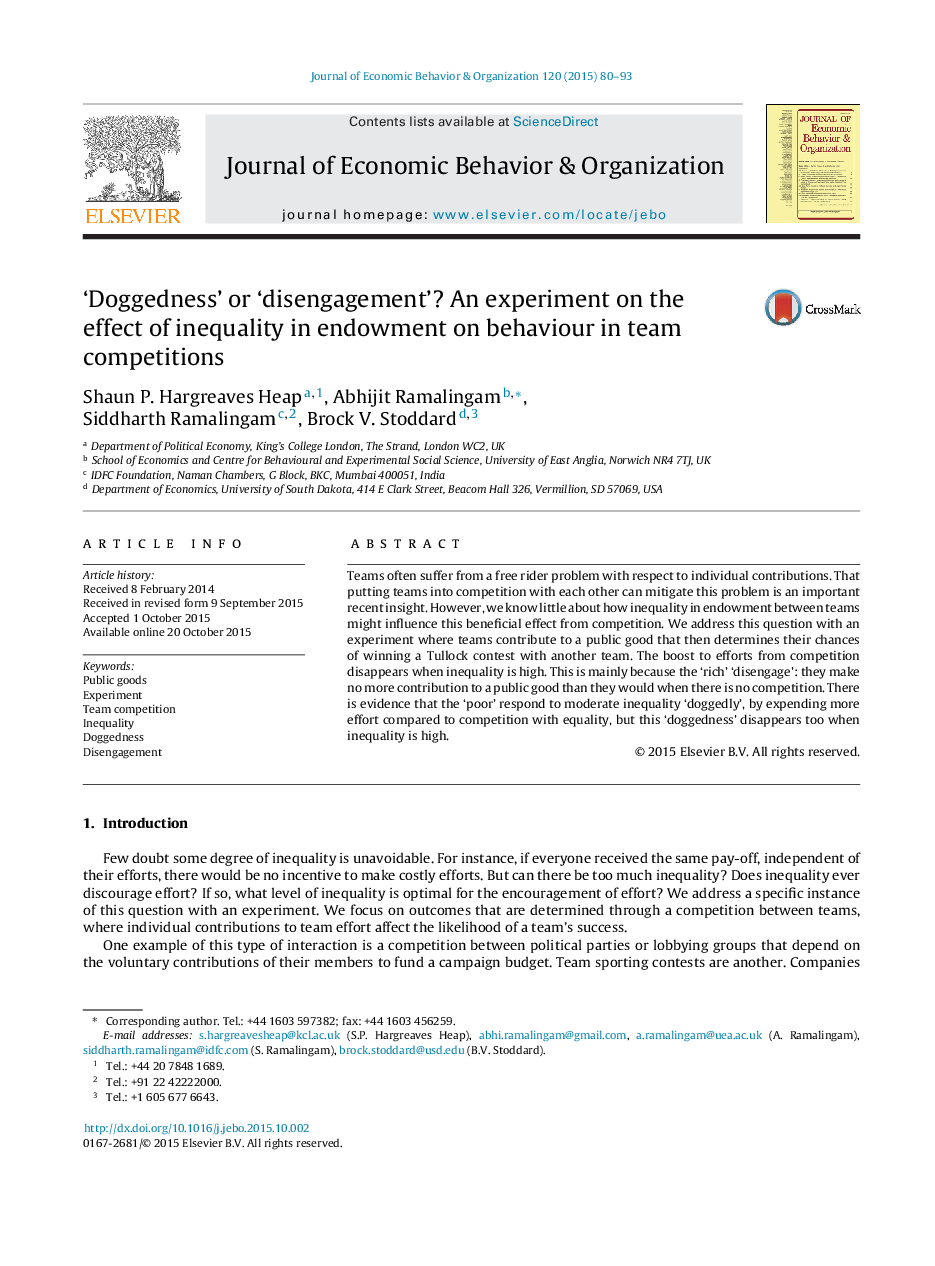| Article ID | Journal | Published Year | Pages | File Type |
|---|---|---|---|---|
| 883443 | Journal of Economic Behavior & Organization | 2015 | 14 Pages |
•Lab experiment examining individual public good contributions in competing teams.•First investigation of effect of inequality in endowments between competing teams.•Competition boosts effort up to moderate inequality but not at high levels of inequality.•The effect is strongest for the poor – they respond doggedly at moderate inequality.•The ‘rich’ disengage from competition at high inequality levels.
Teams often suffer from a free rider problem with respect to individual contributions. That putting teams into competition with each other can mitigate this problem is an important recent insight. However, we know little about how inequality in endowment between teams might influence this beneficial effect from competition. We address this question with an experiment where teams contribute to a public good that then determines their chances of winning a Tullock contest with another team. The boost to efforts from competition disappears when inequality is high. This is mainly because the ‘rich’ ‘disengage’: they make no more contribution to a public good than they would when there is no competition. There is evidence that the ‘poor’ respond to moderate inequality ‘doggedly’, by expending more effort compared to competition with equality, but this ‘doggedness’ disappears too when inequality is high.
